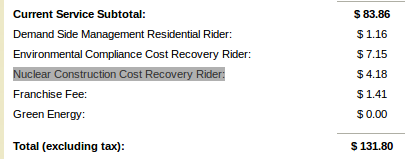Solar energy continues to grow by leaps and bounds worldwide. Except in Georgia. Maybe we should change that. There’s an election going on right now.
Frank Jordans wrote for AP 11 June 2012, $257 billion invested in renewable energy in 2011,
Global investment in renewable energy reached a record of $257
billion last year, with solar attracting more than half the total spending, according to a U.N. report released Monday.
Investment in solar energy surged to $147 billion in 2011, a year-on-year increase of 52 percent thanks to strong demand for rooftop photovoltaic installations in Germany, Italy, China and Britain.
Large-scale solar thermal installations in Spain and the United States also contributed to growth during a fiercely competitive year for the solar industry. Several large American and German manufacturers fell victim to price pressure from Chinese rivals that helped to halve the cost of photovoltaic modules in 2011.
Lower solar PV module price should mean more people can afford to install solar electricity, which should mean more jobs for people to install it. How much lower? According to the report:
Continue reading









